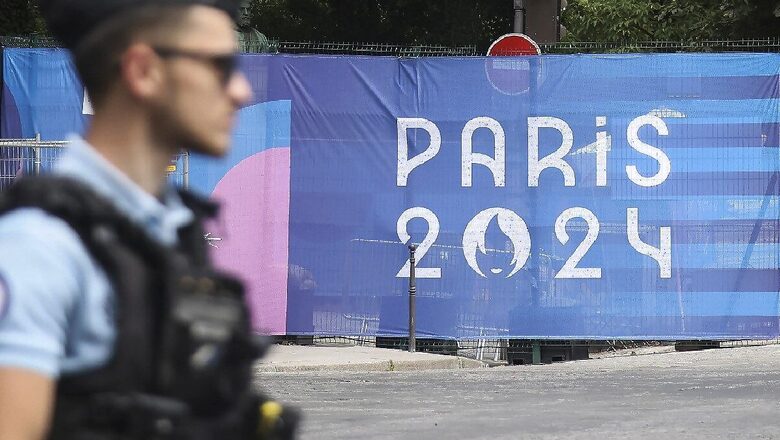
views
France is on its highest state of alert ahead of the Olympics. Heavy security arrangements have been made for Friday’s opening ceremony on the Seine.
The unprecedented choice to stage a river-borne opening ceremony stretching for kilometres (miles) along the Seine has also made security arrangements more complex.
However, threats from Islamists amid the war in Gaza, neo-Nazi and far-right actors and fears that Russia may try to undermine the event has forced the organisers to deploy squadrons of police to patrol Paris’ streets.
They also have fighter jets and soldiers primed to scramble, and have imposed a metal-fence security barriers erected like an iron curtain on both sides of the River Seine that will star in the opening show.
How Is France Tackling The Threats?
France says that foreign elements could try to sabotage the Games. Interior Minister Gerald Darmanin said the French government has conducted about 1 million background checks which scrutinised Olympic volunteers, workers and others involved in the Games as well as those applying for passes to enter the most tightly controlled security zone in Paris — along the banks of the Seine — ahead of the opening ceremony on the river Friday.
The checks blocked about 5,000 people from attending
“There are 1,000 people whom we suspect of foreign interference — we can say spying. We’re here to make sure … that sport isn’t used for spying, for cyberattacks or to criticize and sometimes even lie about France and the French,” Darmanin said.
Who All Have Threatened France?
Darmanin said that “interfering and manipulating information” is not coming from Russia only but from some other countries, too, which he did not name. He also didn’t give more information on the suspected meddling.
“That’s why we’re on the alert, and we want them to know that we’re not naive,” he said.
He has also turned to powers passed under a 2017 anti-terror law, popularly known as MICAS, placing 155 people under surveillance measures that strictly limit their movement and oblige them to register daily with police even though some have never faced criminal charges, according to official data and a Reuters review of cases.
How Tight Are The Security Protocols?
A Games-time force of up to 45,000 police and gendarmes is also backed up by a 10,000-strong contingent of soldiers that has set up the largest military camp in Paris since World War II, from which soldiers should be able to reach any of the city’s Olympic venues within 30 minutes.
Armed military patrols aboard vehicles and on foot have become common in crowded places in France since gunmen and suicide bombers acting in the names of al-Qaida and the Islamic State group repeatedly struck Paris in 2015. They don’t have police powers of arrest but can tackle attackers and restrain them until police arrive. For visitors from countries where armed street patrols aren’t the norm, the sight of soldiers with assault rifles might be jarring, just as it was initially for people in France.
Rafale fighter jets, airspace-monitoring AWACS surveillance flights, Reaper surveillance drones, helicopters that can carry sharpshooters, and equipment to disable drones will police Paris skies, which will be closed during the opening ceremony by a no-fly zone extending for 150 kilometers (93 miles) around the capital. Cameras twinned with artificial intelligence software — authorized by a law that expands the state’s surveillance powers for the Games — will flag potential security risks, such as abandoned packages or crowd surges,
France is also getting help from more than 40 countries that, together, have sent at least 1,900 police reinforcements.




















Comments
0 comment